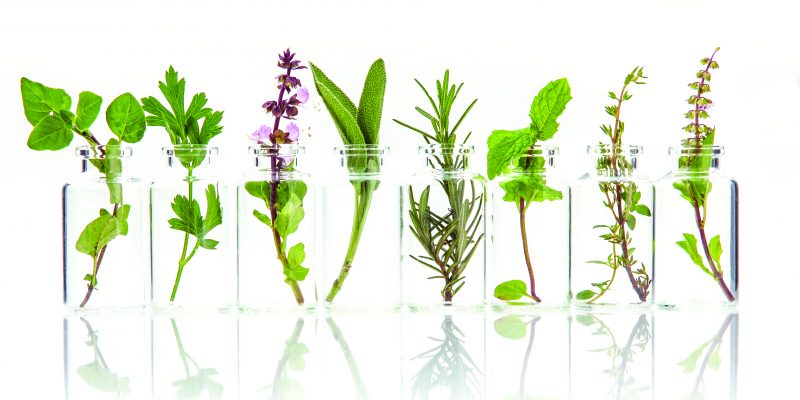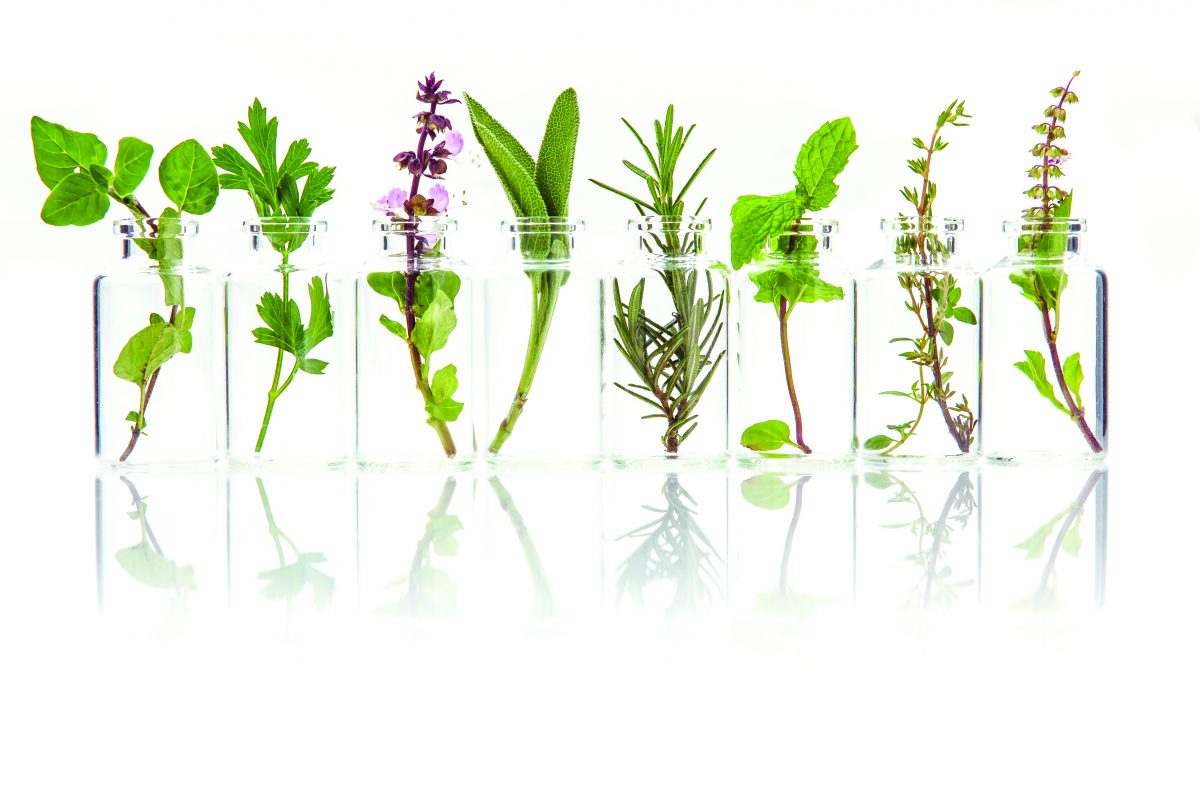By Kristy Elik
Have you ever walked into a room and felt immediately transported to another space and time because you detect a certain fragrance in the air? It could be a perfume or soap, a cleaning product or freshly mown grass… there’s just something about our olfactory capabilities that physically triggers certain physiological changes in our bodies. More than any other sense, smell can alter not only our mood, but our cognitive, psychological and even our physical wellbeing.
For example, in a 2013 study, researchers found greater brain activity associated with olfactory stimuli (like the smell of a rose) than with visual stimuli (like the sight of a rose). Our brain is clearly an extremely complicated organ, and the multitude of factors influencing the connection between odours and memories can be very difficult to disentangle. But we’re increasingly utilizing the benefits of aromatherapy to help combat a variety of health concerns, from stress reduction and anxiety to acne and hair loss.
In the growing movement towards holistic health care, consumers are turning away from man-made remedies and prescription drugs to plant power… and the incredible effectiveness of essential oils. Companies like Saje, doTERRA, Young Living, Edens Garden Essentials and Plant Therapy are just a few of the big names touting the use of essential oils to treat a multitude of maladies.
Plant power
Through the complex process of photosynthesis, plants harness the power of sunlight to convert light energy into chemical energy. Those therapeutic compounds reside inside the plant’s cell cavities, often under the surface of leaves, bark, or peel. These oils capture the plant’s scent and flavour (also called its “essence”) and unique aromatic compounds give each essential oil its characteristic essence.
If the plant is crushed, the essence and its unique fragrance are released. Through a natural process of steam or water distillation and/or expression, pure essential oils can be extracted from any kind of plant. (Note that oils that made with chemical processes are not considered true essential oils.) Once the aromatic chemicals have been extracted, they are combined with a carrier oil to create a product that’s ready for use.
Our clever ancestors
The art of extracting essential oils is far from modern. During the Egyptian dynasties, from about 2,700 BC to 343 BC, frankincense, sandalwood, myrrh, and cinnamon were considered incredibly valuable cargo along the caravan trade routes and were sometimes exchanged in return for gold.
The Greeks soon discovered the Egyptian’s methods and also used essential oils in their practices of therapeutic massage and aromatherapy. The ancient Romans promoted essential oils for health and personal hygiene amongst their people. Chinese and Indian Ayurvedics also used aromatic herbs, and the Persians began to improve distillation methods for extracting essential oils from aromatic plants and herbs.
Each type of essential oil has a different chemical composition that affects how it smells, how it’s absorbed, and how it’s used by the body. Even the oils from varieties of plants within the same species may have chemical compositions different from each other. The same applies to plants that are grown or harvested in different ways or locations.
To get you started, check out these picks and learn how to harness their healing powers.
Peppermint to feel more alert
Smelling peppermint essential oil made drivers perkier in one study. In another, basketball players who sniffed peppermint oil had better energy and performance.
Lemon to get a happiness hit
Japanese researchers found that folks with depression who sniffed citrus fragrance were able to lower their dose of antidepressants; the scent helped normalize hormone levels.
Lavender to sleep better
Research shows that lavender increases brain alpha waves associated with relaxation and deep sleep. The do-it-all scent may also alleviate PMS symptoms and reduce pain.
Ginger to alleviate nausea
Ginger teas and candies work, but smelling the essential oil also eases queasiness, per research done by anesthesiologists; cancer centers use it for patients who’ve had radiation.
Grapefruit to reduce appetite
One small study of rats published in the journal Neuroscience Letters found that inhaling grapefruit oil can inhibit a key gastric nerve, dulling the sensation of hunger.
Lavender, chamomile, and neroli to ease stress
A 2013 study of ICU patients published in the journal Evidence-Based Complementary and Alternative Medicine found that sniffing this combo significantly reduced anxiety.
Eucalyptus to stop sniffles
This scent reduced stuffy noses and head pressure in people with sinusitis, noted a German study. Put a few drops in a sink with warm water, drape a towel over your head and breathe it in.
Black pepper to quit smoking
In one study, cigarette smokers who inhaled it reported having fewer cravings than those who didn’t; the scent irritates the back of the throat, a sensation smokers miss.
Sweet orange to quell anxiety
In one study, adults who inhaled this oil and then took a test handled the pressure sans increased anxiety. Other citrus oils, such as bergamot, can also help you keep your cool.
Rosemary for better focus at work
The scent can improve concentration, speed and accuracy during mental tasks. Other recent research found it may boost memory.
Tea tree oil to fight infections
Antifungal, antiseptic and antibacterial, this oil is so potent that it has killed MRSA and staph in lab settings. Mix it with a carrier oil to fight off athlete’s foot, acne and dandruff, or add a couple of drops to a squirt of your shampoo.
Peppermint to stop headaches
In one study, rubbing this oil (mixed with alcohol) into temples soothed headaches. In another, a massage with peppermint and eucalyptus oils (also combined with alcohol) reduced post-workout muscle cramps.
Lavender to soothe cuts and ease PMS
Reach for it to soothe scrapes and stings. A few drops of lavender oil combined with the same amount of rose oil, plus an ounce of sweet almond oil, may ward off painful menstrual cramps when massaged on the abdomen.
Cedarwood for hair loss and skin irritation
Blended with rosemary, thyme, lavender and a carrier oil and rubbed into the scalp, it can help with hair loss—in one study, 44 percent of women saw new growth. Or pair with melted coconut oil to soothe eczema.
From the sweet aroma of lavender to the stimulating fragrance of eucalyptus, essential oils ignite your senses. Packed within these pure, botanical essences, you’ll discover rich properties that cannot be found elsewhere.

